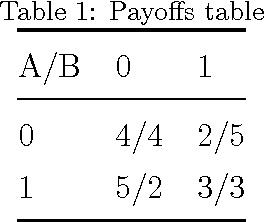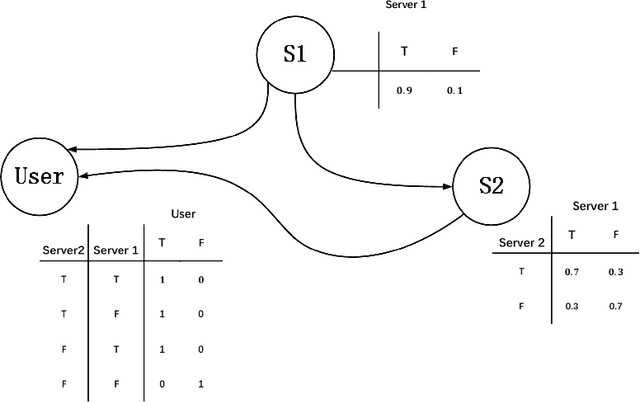Uncertainty measurement with belief entropy on interference effect in Quantum-Like Bayesian Networks
Paper and Code
Sep 08, 2017



Social dilemmas have been regarded as the essence of evolution game theory, in which the prisoner's dilemma game is the most famous metaphor for the problem of cooperation. Recent findings revealed people's behavior violated the Sure Thing Principle in such games. Classic probability methodologies have difficulty explaining the underlying mechanisms of people's behavior. In this paper, a novel quantum-like Bayesian Network was proposed to accommodate the paradoxical phenomenon. The special network can take interference into consideration, which is likely to be an efficient way to describe the underlying mechanism. With the assistance of belief entropy, named as Deng entropy, the paper proposes Belief Distance to render the model practical. Tested with empirical data, the proposed model is proved to be predictable and effective.
 Add to Chrome
Add to Chrome Add to Firefox
Add to Firefox Add to Edge
Add to Edge